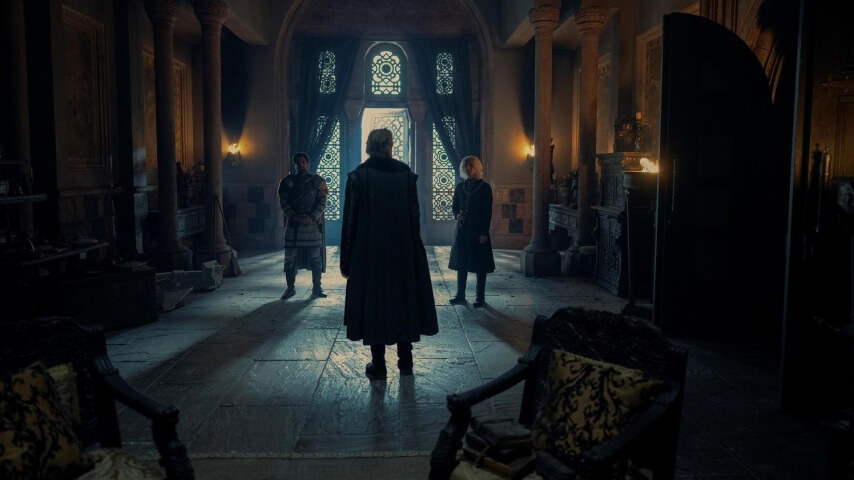House Of The Dragon's Tom Glynn-Carney on Aegon's torched existence
The actor unpacks King Aegon's complicated journey in House Of The Dragon season two

King Aegon lives! Despite being burnt to a crisp by his younger brother’s dragon in episode four, the eldest Targaryen boy survives. House Of The Dragon’s fifth installment, “Regent,” reveals that Aegon (Tom Glynn-Carney) doesn’t die after falling in battle. Instead, he’s charred and so badly injured he can barely talk, and the maesters have to cut off his armor as Alicent (Olivia Cooke) and Aemond (Ewan Mitchell) look on.
It means Aegon is out of action for a while, and we’re robbed of Glynn-Carney’s stellar portrayal of a character who could’ve easily become a one-note villain like Game Of Thrones’ Joffrey (Jack Gleeson). The actor imbues Aegon with much-needed complexity, ranging from comic relief to heartbreak. The A.V. Club spoke to Glynn-Carney about fleshing out the role in season two, how he views Aegon’s state of mind now, and the turning point in his journey.
The A.V. Club: Knowing what was going to happen to Aegon in episodes four and five, how did you want to play up his state of mind before he decides to ride on Sunfyre straight into battle? What were the conflicting emotions you wanted to take the time to depict?
Tom Glynn-Carney: I think the focus was to show he’s pushed to the limit in a way he hasn’t before. He’d just been painfully reminded about his biggest insecurity of being seen as weak and useless. Alicent said that to him in no uncertain terms. So I think he felt like he was backed into a corner and felt this was the only thing he could do. At least that’s how I justified his actions. And in doing so he realizes he’s not naturally a warrior. He doesn’t have that sort of brave, fearless mentality of some of the other characters. So he needs something to numb his fear and gets absolutely blind drunk and gets around to it.
AVC: How much do you think it weighs on Aegon that he has to follow in the footsteps of his father?
TGC: Viserys [Paddy Considine] was the only sort of positive male figure on the show. Not positive to Aegon necessarily, but at least to the masses, so that’s his experience. I think seeing the way the small folk responded to Viserys while he was growing up showed Aegon his father was a good king who was liked and well-respected. He’s forged good and healthy relationships with people, so I definitely think it’s an element Aegon wants to replicate. You see that in episode one. But there’s a very, very quick realization that Aegon isn’t Viserys. He’s a completely different beast who has to play to his strengths.
AVC: In episode four, Aegon is fighting Meleys and Rhaenys, then feels relief when Aemond shows up, and it quickly turns to fear. What was it like to portray this range in so little time? What talks did you have with Alan Taylor about your performance in it?
TGC: Yeah, as you said there wasn’t much time. We did like bullet points of moments we wanted to bring to life and what needs to be a priority. Yes, he sees his brother coming on Vhagar and the goal is to show that Aegon thinks it’s to rescue him. But the melee continues because that’s how the dragons are and that’s how the fight is going. There’s no escaping that fire and whatever else is coming Aegon’s way. Of course, people can make their own decisions on what Aemond’s intentions are, that bit is up for grabs. We didn’t want to fully spoon-feed that either. We spoke at length about these moments, especially seeing fear in Aegon’s eyes but also showing that he’s driven to prove himself.
AVC: Episode five reveals that he’s alive but badly burned. There’s only one line of dialogue you get, which is “Mummy.” It feels very vulnerable and understandable that he regresses to this child-like state and calls after his mother.

 Keep scrolling for more great stories from The A.V. Club.
Keep scrolling for more great stories from The A.V. Club.